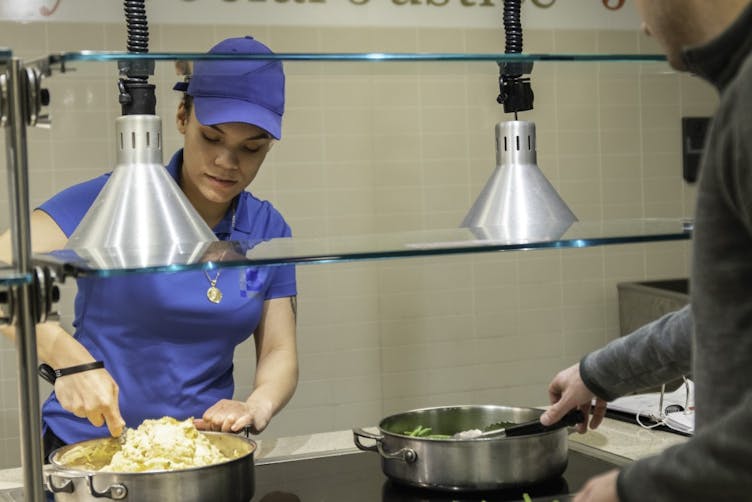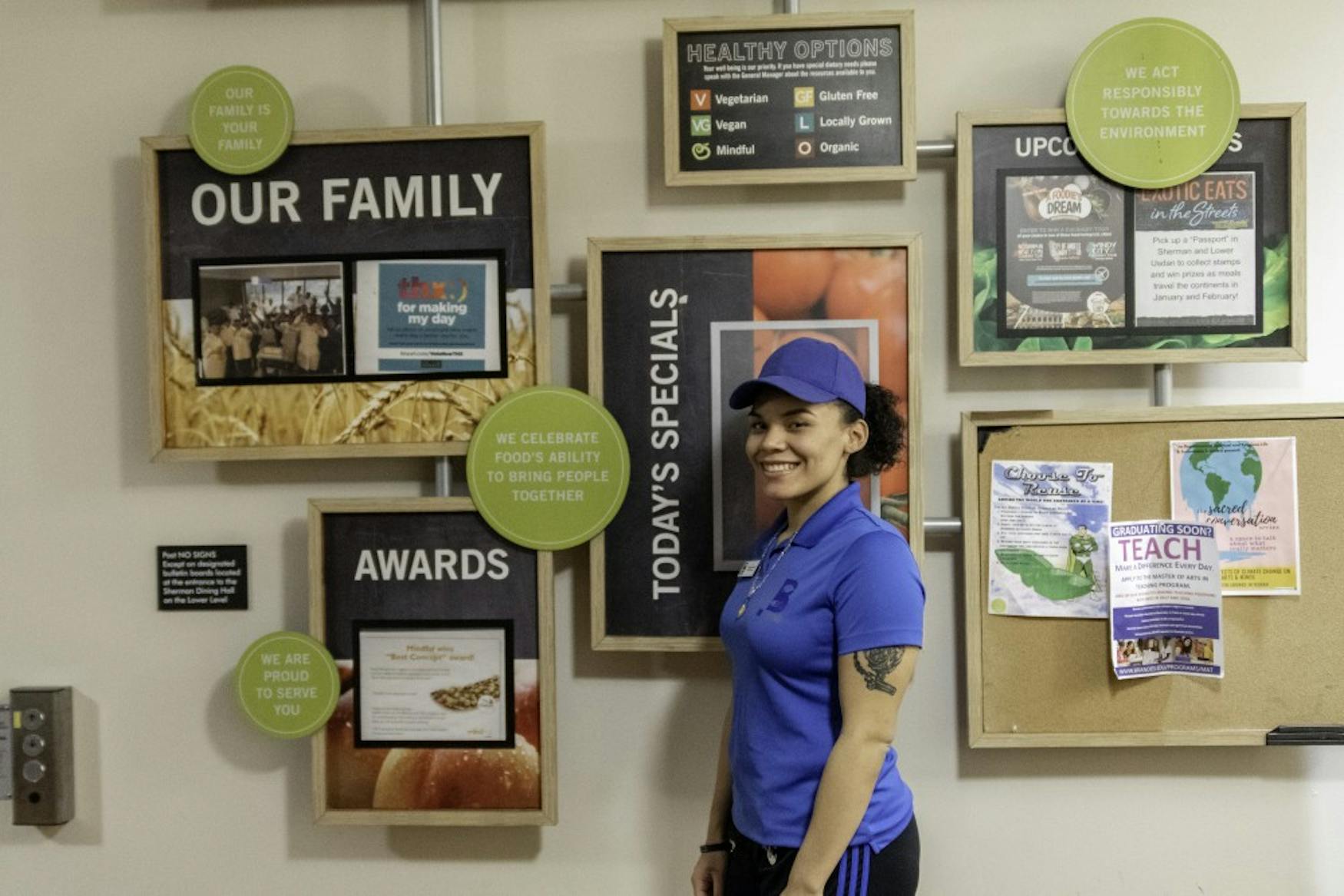Shaping her own
Destiny Morton ’20 discusses her journey as a first-generation college student.
Destiny Morton ’20 never expected to set foot on a college campus. Growing up in a family where no one was a college graduate and with multiple suspensions under her belt by the time she was a high school freshman, Morton did not see herself entering the world of higher education.
Against all odds, Morton matriculated at Brandeis through the Myra Kraft Transitional Year Program in August 2016. “College wasn’t a topic of conversation in Lawrence. It was a risk I took. I didn’t have any friends going to college,” she said. “It was just me.”
A month after starting college, Morton was hired as a Sodexo employee and has since juggled working for on-campus establishments like Einstein’s and the Faculty Club with a college course load.

STUDENT LEADER: Morton was promoted to student manager as a sophomore, a year after being hired.
Her on-campus jobs quickly made her a familiar face on campus. And while many students recognize her, very few know that she is also a Brandeis student. “People tend to assume that I am a regular employee; the majority of time people see me on campus, I have my blue shirt and hat on. Some people are surprised when they see me walking on campus in regular clothes or in the same class as them,” she said.
A year after being hired as a Sodexo employee, the Sociology and Health: Science, Society, and Policy (HSSP) double major was promoted to student manager. As a manager, Morton feels she has cultivated a strong sense of community within her employees.
Even though Morton describes working in the dining hall as a “privilege,” she is quick to recognize the fact that for many students – including herself – working while in college is necessary. “Some of us don’t have any other choice but to work while pursuing an education,” she said.
In the past two years, Morton has had a set 25-hour work week, not including any extra shifts she would pick up. “I have so many stories of having to sacrifice sleep so that I could work and complete my academics,” she said. This year, Morton is also working as a caregiver for the elderly, making her average work week more than 30 hours.
“I’ve had to sacrifice things like hanging out with friends so many times, but I have learned so much in the process,” Morton explained. “Working while being in college has taught me that every minute counts.”
At an institution like Brandeis, where first-generation students constitute less than a quarter of the student body, Morton has also had to face the fact that her experience is drastically different from that of most Brandeis students. “There is a stigma that comes with being a first-generation student especially when you’re a low-income student or here on a scholarship. You feel like you have to prove yourself, as if your backgrounds are a shortfall rather than a strength,” she said.
Unlike the majority of students, Morton has navigated the entire process of college life without a substantial familial support network. “Being a first-generation student, I sometimes struggled with this idea of leaving my family behind or feeling the need to figure out how to help them,” she said. “It’s a challenge when you don’t have someone to turn to for guidance and when you do there’s a high chance of them not knowing how to help you since they haven’t experienced it themselves.”
Despite the struggles of balancing a substantial work schedule and double majoring, Morton views her very presence at Brandeis as representing more than just herself. “My hope, with completing my college journey, is to leave the paths for the little ones behind me to follow. I hope to learn from all my mistakes so I can be that person I didn’t have growing up.”
The idea that Morton’s college journey is larger than just herself is echoed in the story of how she came to Brandeis. After her acceptance into the MKTYP, Morton was hesitant to matriculate because enrolling in college would mean sacrificing her ability to work full-time. However, one of her classmates in high school told her that she needed to go to college for others.
“I spoke to a student who told me ‘Destiny, do it for those who can’t’ so I went for it,” Morton said.
The junior doesn’t know exactly what she wants to do post-graduation, but her dream is to work in the medical field. Morton’s strong philanthropic values are encapsulated by her simple insistence that whatever she does post-graduation has “to help others out.”




Please note All comments are eligible for publication in The Justice.